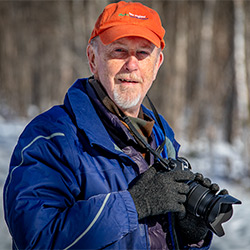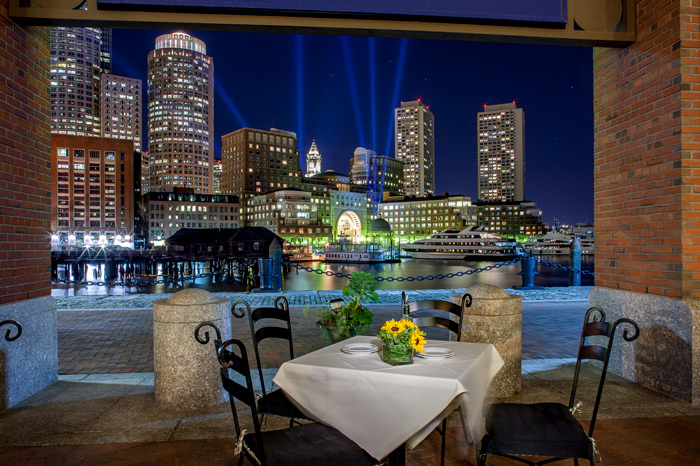 Today’s interview comes from the great state of Massachusetts and features an extraordinarily talented Photographer named Robert M. Ring. Robert finds inspiration for his work with a fondness for exploring all of the beauty that New England has to offer. With careful consideration and skill, Robert’s work effectively captures the essence of his surroundings.
Today’s interview comes from the great state of Massachusetts and features an extraordinarily talented Photographer named Robert M. Ring. Robert finds inspiration for his work with a fondness for exploring all of the beauty that New England has to offer. With careful consideration and skill, Robert’s work effectively captures the essence of his surroundings.
Robert, thank you for allowing us to learn about your passion for photography and for allowing us to get to know a bit about you. You are a brilliant photographer and someone whose work is definitely worth following.
If you’d like to learn more about Robert, please visit his website. You can also follow him on Instagram.
Where do you call home?
I was born and raised in Massachusetts, so I am a long time New Englander. Living in Massachusetts, I really enjoy traveling around New England to photograph its beauty. Maine may be my favorite state out of all of them if I may say so!
Can you please tell the readers a bit about yourself?
I graduated from Northeastern University in Boston with a degree in Electrical Engineering. During my early years as an engineer, I bought a Nikon Photonic fTn (film) camera in 1971. Photography was my hobby up until 9 years ago when in 2009 I co-founded a small company (New England Photo Workshops) with one of my photography friends. Offering photography workshops provided me with the opportunity to help other photographers learn about all aspects of photography. I found then that I thoroughly enjoy teaching and helping others. My business partner has since moved on to a full-time position offering photography workshops for a local photography store in Massachusetts. I still do a few photo workshops during the year but am really enjoying retirement and practicing photography around New England. My passion today still revolves around helping others in the field of photography. I belong to two camera clubs here in Massachusetts and frequently provide educational presentations to the memberships and to other camera clubs as well around New England.
What inspired you to be a photographer?
Way back when I tried drawing and immediately recognized I didn’t have the talent to draw or paint, so photography was a perfect alternative for me.
Can you tell the readers about your day-to-day activities.
Being retired, my day-to-day activities frequently include going out to explore various locations to take photographs and to then process those images. Some locations are very familiar, and others may be new to me. Going back to familiar locations is a good thing to do for any photographer! After that I share images on my Facebook and Instagram pages and offer them for sale, either as prints or as files, on my own website www.robertmringphotography.com. Today’s internet and online websites enable me to share my images with others more easily than I ever could in the days of film. In those days I shot Kodachrome slide film and when family members came over to the house, I would take advantage of the ‘captive audience’ to put on an impromptu slide show for them! Oh no, not another slide show!
How do you keep yourself motivated?
I really enjoy photography and in particular, I really enjoy landscape photography. Having said that I want to be the best overall photographer that I can be. So, when given the opportunity to take portraits, photograph a music concert, do a commercial assignment or sporting event as examples, I jump to do it. I believe a photographer should not limit him or herself to one type of photography. The point is I enjoy learning as well as practicing all types of photography.
Looking back on my experience as a photographer, I believe things have really changed over the years on the ‘education front’. What I mean by that is new or aspiring photographers can easily go on the internet and learn how to take a photo. But that doesn’t mean they can take a great photo. Learning about photography from an accomplished photographer is a great way to get started in photography as opposed to ‘internet learning’. So, what’s the secret to taking great photos? I’ll tell you: it’s being able to ‘see’ the final image when you’re in the field taking photos. Knowing what will work and what won’t work. What will the final image look like? Some folks have that ‘skill’ and others don’t. I like to think I do! An accomplished photographer (one that you respect) is someone that new photographers should migrate to in order to help improve and grow their own photography skills.
What has been the biggest source of inspiration in your work?
I have to say that with digital cameras I’ve really come to enjoy the ‘processing’ part of photography. I would say that it has become 50% of my photography now. That part of it inspires me to capture images and to then reveal what I saw or want to convey for others to see. Browsing through Instagram is very inspiring for me and I would suggest it for any photographer. One can see new locations and what opportunities are out there for a photographer to pursue for their own work. You can get some great ideas to try for yourself.
What industry sites and blogs do you read regularly? Would any stand out as particularly motivational or inspirational for someone who might be interested in learning about photography?
I think it’s important to read up on what’s new in the photography industry, so I look at DPReview daily along with various ‘rumor’ and manufacturer web sites.
What is one piece of advice you would like to offer a new photographer looking to start their own business?
The photography industry is a tough one to start a new business in today. ‘Everyone has a camera’ nowadays so you need to separate yourself from others by offering something unique to your customers. In my case, it’s education via workshops or camera club presentations.
Share with us your favorite image and why.
I am unable to pick a single favorite image of mine to share with you, but I am sharing this one that I took in 2008 of Boston Illuminale. I was with the camera club and helping members learn to take nighttime images. It was near the end of the night and the open-air restaurant behind us was wrapping up for the evening. I saw the table in the image and asked the waiter if he could hold off on cleaning that table. I then took out a flashlight and lit the table up (light painting) while the wind was blowing and using my camera with a24mm wide-angle lens captured the scene with Boston in the background. I call this image ‘Table with a View’. The camera club members that were beside me were all impressed at how I ‘saw and captured’ the scene to tell a story. It’s won various awards both locally and nationally.

What type of camera(s) do you shoot with? What is your favorite lens?
Over the years I have been fortunate to be able to utilize all types of film cameras from 35mm to medium format to 4×5 view cameras. In the ‘digital age’ I have been fortunate to utilize different brands and types of digital SLR and mirrorless camera systems. Throughout the years I have bought and sold a lot of new and used camera equipment. And I mean a lot! That experience has helped me with ‘new’ photographers to help them to understand their gear better by my having a hands-on experience with various cameras and lenses.
I am currently using 4 different, mirrorless cameras: a Leica SL, Leica Q and Nikon Z7 (full frame sensors), along with a Leica CL (crop sensor) with assorted lenses for each. My favorite focal length is something wide like 18mm or 24mm. I utilize wide-angle lenses to not only capture a landscape or scene but also on close-ups to help tell a story from that perspective too.
I believe that digital photography requires a strong understanding of ‘how to process’ an image. Yes, one should try to get the best image they can in their camera when in the field. But that is only half the battle. One must process an image to their liking to get the most effective result. That could mean boosting the colors of an image or converting an image to black and white as the case may be.
How important is Photoshop or other image editing software in your final images?
When it comes to processing images, I’ve found that Lightroom is my go-to software along with various plug-ins to help me get to the final image result I want. Photoshop helps on occasion but it’s just not as important for me in my work. The other advantage of Lightroom is its organizational capabilities that are quite valuable to help one to keep track of their image library! I’ve got thousands of images and need to keep them organized. I currently provide one-on-one training for photographers with Lightroom. No matter your skill level there’s always something new to learn!
What are your future plans?
As I go forward, I wish to continue to help other photographers to improve their own photography. I enjoy sharing my techniques and ideas with others and seeing their results. I’ll continue to offer photo workshops and to do portraits, scenics, assignment, or event photography. I enjoy it too much to stop! Thanks for taking the time to talk to me, Laura.
Leave a Reply